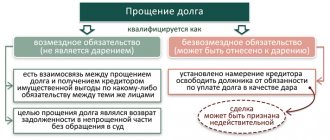Today, rent is one of the most profitable areas of business. There is no need to recruit a huge staff of qualified employees, there is no need to deal with production and purchasing, and there are minimal risks with an excellent level of income.
An individual entrepreneur rents out non-residential premises, what taxes is he required to pay?! Despite the fact that not only individual entrepreneurs, but also legal entities and individuals can engage in this type of activity, the tax rate varies quite significantly. Which taxation option is more profitable for a “rental” business, and what troubles may lie in wait for individual entrepreneurs?
Who pays and when
Until 2021, various assets, including movable ones, were considered property for tax purposes. Now only real estate is subject to payments. Legal entities pay corporate property tax on it, and individual entrepreneurs pay personal property tax. Both of these payments are regional, which means there are many nuances of taxation in each specific subject of the Russian Federation.
As for simplified companies and individual entrepreneurs, according to Article 346.11 of the Tax Code of the Russian Federation, their real estate should be exempt from taxation. Instead of property tax and a number of others, they make payments in connection with the application of the simplified tax system. However, there are exceptions to the rules of this article, and they significantly change everything.
Organizations
Paragraph 2 of Article 346.11 states that property tax under the simplified tax system is levied on real estate, the base for which is determined as their cadastral value. This applies to the company’s own real estate, as well as those owned by it under the right of economic management or received under a concession agreement.
Individual entrepreneurs
What about individual entrepreneurs on the simplified tax system and property tax in 2021? The situation is similar to that described above. The only difference is that entrepreneurs pay property tax for individuals, not organizations. It is levied on own real estate, which:
- used in business activities;
- is included in the list of objects for which the base is calculated as cadastral value.
Along with this, a citizen who is an entrepreneur may have personal real estate - an apartment, a dacha. She will be subject to the same tax, but at a different rate.
Free tax consultation
Rights and obligations of the parties
The parties to a transaction for leasing non-residential premises can be an individual entrepreneur or a legal entity. The agreement is recognized as valid only when executed in writing.
The main nuances when concluding a transaction between an individual entrepreneur and an LLC:
- If the contract is endorsed by the general director on the part of a legal entity, he must confirm his authority to do so in a documentary manner.
- An individual entrepreneur, whose actions are based on a certificate of state registration, can confirm his authority with his passport and a certificate of registration represented by an individual entrepreneur (USRIP).
- Without a trust document, the manager authorized to act on behalf of the LLC has the right to sign a lease agreement (extract from the Unified State Register of Legal Entities).
A businessman can endorse the agreement with a personal signature, since the legislation of the Russian Federation allows entrepreneurs to conduct business without a seal.
An entrepreneur can rent out premises to individuals. face. The legislation does not regulate the rules regarding rental restrictions. Consequently, any legally capable person can participate in a transaction for the lease of non-residential premises.
Renting out a personal car by an individual entrepreneur is not prohibited by law. The transaction is formalized by signing an agreement between the entrepreneur and an individual or LLC. The clauses of the contract clearly state all the nuances that may arise during the operation of the car. A party is appointed to bear the costs associated with the purchase of fuels and lubricants, spare parts and monetary compensation for wear and tear.
An individual entrepreneur who has the right of ownership of a vehicle intended for the provision of motor transport services can apply the UTII taxation system. This rule is regulated by Tax Code Article 346.26.
Cadastral valuation
So, the cadastral value is a mandatory condition under which property tax is calculated on the property in 2021. It is not a constant, that is, it can change depending on various factors. To determine this value, a cadastral valuation of real estate is carried out.
Exactly which objects should be valued at cadastral value for tax purposes is specified in Article 378.2 of the Tax Code of the Russian Federation. These include:
- administrative, business and shopping centers;
- premises for offices, trade, catering establishments and services;
- some types of objects of foreign legal entities;
- residential real estate, garages, parking spaces, country houses, outbuildings on plots for individual housing construction or subsidiary plots, as well as unfinished construction projects.
This is a general list of object types. In each region, by decision of the authorities, their cadastral value is assessed. This year, the vast majority of regions (74 out of 85) evaluate real estate at cadastral value. Such an assessment can be carried out either selectively or in relation to all types of real estate. As an example, the administration of a constituent entity of the Russian Federation decides to conduct an assessment of all apartment buildings.
After determining the cadastral value, a law is issued stating that taxation of objects should be carried out on its basis.
List of taxable objects
A list of objects, the base for which is calculated as their cadastral value, is compiled in each constituent entity of the Russian Federation at the beginning of the year. It must be posted on the website of the executive authority and sent to the regional Federal Tax Service.
Thus, a business entity using a simplified system needs to check the list on the website of the administration of its region. If the object is included in it, therefore, it is subject to real estate tax even despite the application of the simplified tax system.
For example, in 2021 in St. Petersburg, 5,796 objects were subject to taxation, including residential premises, non-residential buildings and structures for various purposes, garages and parking spaces.
Lease contract
A lease agreement for non-residential premises is an agreement concluded between the parties (tenant and lessor) planning to conduct business (trade, storage, etc.)
Real estate is used to receive revenue from a second party for the temporary use of a residential or non-residential property.
If the premises are planned to be rented to an individual, in order to carry out such an operation it is necessary to register as an individual entrepreneur.
In addition, at the initial stage of registration, a businessman must indicate rent in the types of activities.
Under the general taxation system, when renting out real estate, an individual entrepreneur is required to pay a tax of 13%, maintain a KUDiR (book of income and expenses), and also provide reporting in Form 3 of personal income tax within the established time frame.
Regarding entrepreneurs working on the simplified tax system, then:
- Individual entrepreneur on the “income” object with a rate of 6%.
- Entrepreneurs on “income reduced by expenses” apply their standard rate of 15%.
Businessmen on a patent take into account a flat tax of 6%.
It is worth paying attention to the fact that the landlord pays for utilities for his premises himself; accordingly, using the simplified tax system “income minus expenses”, he can include them in his expenses when calculating the tax. The simplified “income” system does not allow this to be done.
The patent system operates on estimated income; accordingly, an individual entrepreneur using PSN also cannot reduce the tax base for utility costs for non-residential property that he rents out. Moreover, the tax is paid automatically at the stage of purchasing a patent for a year.
If an entrepreneur rents out an apartment using the simplified tax system “income minus expenses”, in addition to utilities, he can include repair costs as an expense item, thereby reducing the tax base.
Let's consider an example of calculating tax when renting out residential premises owned by an individual entrepreneur working on the simplified tax system “income”.
The lease agreement specifies the monthly payment amount in the amount of 20,000 rubles. per month. The annual income from the apartment will be 240,000 rubles.
We recommend you study! Follow the link:
11 points of the lease agreement for non-residential premises between an individual entrepreneur and an individual
The entrepreneur undertakes to pay 6% on “income” for the reporting year, that is, 240,000 x 6% = 14,400 rubles.
Moreover, it is worth noting that in addition to this tax, the individual entrepreneur is obliged to make payments to the Pension Fund and the social insurance fund. Therefore, the question of whether it is more profitable to rent out an apartment to an individual (13%) or to an individual entrepreneur is very controversial.
An entrepreneur who rents non-residential premises for his business can reduce the tax base using the simplified tax system “income minus expenses.”
Property tax for organizations under the simplified tax system
The maximum rates at which objects of one type or another are subject to corporate property tax are prescribed in the Tax Code. But they are precisely determined by regional authorities. Property tax for simplified taxation system payers is levied at a maximum rate of 2%. Along with this, a zero rate is also applied.
The law allows regional authorities to set different rates for certain objects, payers, and tax periods. For example, in the Irkutsk region, for organizations using the simplified tax system in 2021, a rate of 1% applies to taxable property (by 2023 it will gradually increase to 1.5%). This is defined in the regional law dated October 8, 2007 No. 75-OZ.
For property tax on legal entities, benefits are provided at the federal level, which can be supplemented by regional ones.
Organizations usually pay property tax in 2021 quarterly: 3 advance payments and one final payment. The specific payment deadlines depend on the region, but generally this must be done before the end of the month following the reporting quarter. However, in a particular subject, a reporting period may not be established, so there is only a tax (calendar) year. In this case, the payment is made 1 time.
In 2021, the rules for taxation and reporting of property tax for legal entities were changed. Here are the main innovations that affect organizations:
- You now need to submit a declaration to the Federal Tax Service only once a year - until March 30 of the next year. Previously, it was necessary to submit calculations of advance payments;
- Previously, real estate assessed at cadastral value was taxed, provided that it was listed on the balance sheet as a fixed asset. Now there is no such condition;
- in 2021, the tax base of garages, parking spaces, construction “unfinished” and other objects is considered at the cadastral value.
In addition, this year the world is experiencing a crisis associated with the threat of the coronavirus pandemic. In this regard, some temporary changes to the commercial property tax were adopted.
Thus, the deadline for filing the declaration for 2021 was postponed - instead of March 30, it had to be submitted on June 30. In a number of regions, authorities have reduced tax rates and provided installment plans and other preferences. For example, in Moscow it was decided not to carry out a cadastral revaluation this year, although it was planned before the onset of the coronavirus crisis. To calculate taxes, the cadastral value of 2018 will be used. This will allow property owners to save about 3% on tax payments.
How to count
The formula for calculating the tax amount for the year is as follows:
Cadastral value * Rate.
To find out the cadastral value, you need to go to the Rosreestr website. You can check the rate for your property with the Federal Tax Service. In regions where there is a reporting period, the resulting value is divided by 4. This amount is paid once a quarter.
✐ Example ▼
Let’s take an organization from the Irkutsk region using the simplified tax system and calculate the property tax on its own retail premises, the cadastral value of which is 15 million rubles. We apply a rate of 0.5%: 15,000,000 * 0.5% = 75,000 rubles. This is the tax amount for the year. The size of each payment will be: 75,000 / 4 = 18,750 rubles.
Individual entrepreneur tax on simplified tax system
With the tax on the property of entrepreneurs, which they use in business, everything is much simpler, since they do not have to calculate it themselves. This is what the Federal Tax Service does. Everything is exactly the same as with a citizen’s personal property. You just need to make sure that the tax authority knows about the property, and when the receipt arrives, pay the specified amount.
Tax payment is made once, since only the tax period is established. The deadline is December 1 of the following year. There is no need to submit any reports to the tax authority.
The maximum rate at which property tax is levied under the simplified tax system is 2%. The authorities of a particular subject of the Russian Federation can reduce it to zero or increase it, but not more than 3 times. As in the case of corporate property tax, rates can be differentiated.
Let's give an example of rates in St. Petersburg:
- garages and parking spaces are taxed at a rate of 0.3%;
- expensive real estate (more than 300 million rubles) - at a rate of 2%;
- residential real estate - at rates from 0.1 to 0.25% depending on the type and cost;
- some other objects - at a rate of 0.1%.
Differences in taxation of rental income
Some believe that it is more profitable to rent out real estate through an entrepreneur who works at a tax rate of 6%, as opposed to an individual who will have to pay 13% of the income from the transaction.
In fact, the entrepreneur pays additional contributions to the budget. An individual entrepreneur is required to pay taxes on rental activities:
- 6% from rental income;
- contributions for oneself to the pension fund;
- deductions for wages of employees (income, Pension Fund and social insurance fund).
In addition, the entrepreneur has a lot of paperwork related to accounting. If an individual entrepreneur rents premises, this directly affects his profit. Costs are non-operating and have an indirect impact on operating results.
Renting out an apartment and non-residential premises involves receiving money for the use of the property. But, non-residential premises are most often subject to VAT, unlike residential premises. This is due to the fact that non-residential premises are often rented out for commercial activities. And mainly such areas are of interest to large organizations registered as a legal entity and interested in receiving VAT. Entrepreneurs working for OSNO can provide a tax deduction, who as a result of such a transaction receive not only a profit, but also a tax liability in the amount of 18% of the amount specified in the lease agreement.
Of course, there are cases when LLCs agree to rent without value added tax, but only for small areas.
The advantage of renting out residential real estate to friends or relatives by an individual is that there is no obligation to pay money to the budget. But, in this case, non-residential premises must be rented out without payment, otherwise the transaction will be equated to a commercial transaction subject to calculation and payment of tax.
We recommend you study! Follow the link:
Step-by-step instructions for organizing a business by renting an apartment
Both an entrepreneur and an individual have both pros and cons from rental services.
conclusions
We looked at the property tax of organizations and the tax on property of entrepreneurs that is used in business, which are valid for payers of the simplified tax system. They are levied on the real estate for which the cadastral value has been determined. If it has not yet been installed, you do not need to pay taxes.
You can find out exactly whether a particular commercial real estate property is taxable or not by checking the list that is posted on the website of the regional executive authority. Individual entrepreneurs don’t have to worry - the Federal Tax Service will calculate the tax itself and send a receipt.
The taxes that business entities pay on their real estate are regional. Therefore, specific rates, payment terms, and benefits may vary. To find out all the nuances, we recommend that you familiarize yourself with the laws of the relevant constituent entity of the Russian Federation.







